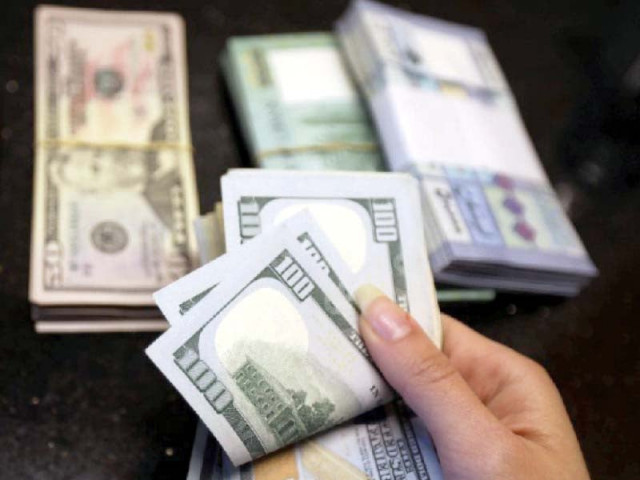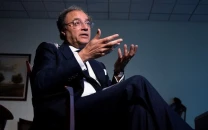External debt servicing to stay above $10b next fiscal
Country will also pay $3.8b to external creditors during last quarter of current fiscal

The country’s external debt servicing will remain over $10 billion a year for the next two years, as the government weighs its debt-related foreign inflows position to meet the mounting foreign obligations that keeps it dependent on global lenders.
The $10 billion a year external debt servicing is exclusive of the foreign loans that Pakistan has taken in the shape of deposits from the United Arab Emirates (UAE) and China, the ministry of economic affairs informed the finance ministry on Tuesday.
The $2 billion of the UAE and China’s $4 billion are expected to be rolled over, reducing the repayments by the same amount.
The ministries of finance and economic affairs held a meeting to take stock of the situation, which suggested that the government would have to keep the International Monetary Fund (IMF), the World Bank and the Asian Development Bank (ADB) on its right side, sources told The Express Tribune.
Finance Minister Shaukat Tarin and Economic Affairs Minister Omar Ayub Khan led their ministries to the review of the inflows and the outflows.
The meeting was informed that against the current fiscal year’s expected inflows of $14.4 billion, the disbursements of loans might remain around $12 billion, the officials said. Up to $2.5 billion shortfall will be because of only $500 million disbursements by the IMF and no disbursement from the $1 billion Saudi oil facility.
The IMF programme remained derailed for one year and is again being reviewed just after one month of its revival. Tarin is currently weighing his options to keep the economy afloat, as he has already showed his reservations over the harsh IMF conditions.
The finance minister on Monday hoped that the IMF staff would understand Pakistan’s position as the government requested for a sympathetic view due to the pandemic. Tarin is opposed to further increasing the electricity prices and slapping new taxes – the two conditions that Pakistan has agreed in writing to meet by March this year.
Tarin said that the IMF target could be met through alternative measures, as higher electricity rates were only promoting corruption. The finance minister said he did not believe in increasing taxes to increase revenue collection but those outside the tax net would be tapped.
Another $1.5 billion lending by the World Bank was also at stake due to Pakistan’s inability to meet some of the conditions, including notifying increase in electricity prices.
Tarin has held meetings with World Bank officials to secure the $1.5 billion loan, as the country does not have an immediate solution but to take more loans due to the failure in enhancing exports and foreign direct investment.
The government has received loans worth $10.4 billion during July-March period of this fiscal year, including $2.5 billion Eurobonds. However, the World Bank has so far disbursed only $938 million as against annual estimates of $2.3 billion.
Pakistan will also have to pay $3.8 billion to external creditors during the last quarter (April-June) of the current fiscal year and any shortfall against the projected disbursements might put some strain on the foreign exchange reserves, which have largely been built by taking loans.
Along with exports, the foreign direct investment is also not picking up. The Chinese investment under the special economic zones is also not materialising after the government has failed to finalise an SEZs incentive package. China has also showed reluctance to sign an Industrial Framework Agreement, according to the sources.
The ministerial meeting also reviewed the possibility to fast track disbursements of over $16.5 billion foreign loans that Pakistan has signed but remain undisbursed due to long gestation periods of the projects and not fulfilling conditions.
The meeting was informed that these loans would be disbursed subject to resolution of all the outstanding issues. The government also does not have sufficient fiscal space in the budget to provide rupee cover to these foreign loans.
Prime Minister Imran Khan had set up a National Coordination Committee on Foreign-Funded Projects (NCC-FFP). The committee had been set up after the existing government bodies and approving authorities failed to undertake measures that are needed for swift disbursements of stuck-up foreign loans.
At present, 14 foreign-funded projects – including power generation, transmission and distribution amounting to $3.4 billion are under implementation.
Foreign funding would be utilised for supporting social protection and skill development programmes to protect under-privileged groups of the society and to empower youth by imparting valuable skills, Tarin said during the meeting.



















COMMENTS
Comments are moderated and generally will be posted if they are on-topic and not abusive.
For more information, please see our Comments FAQ